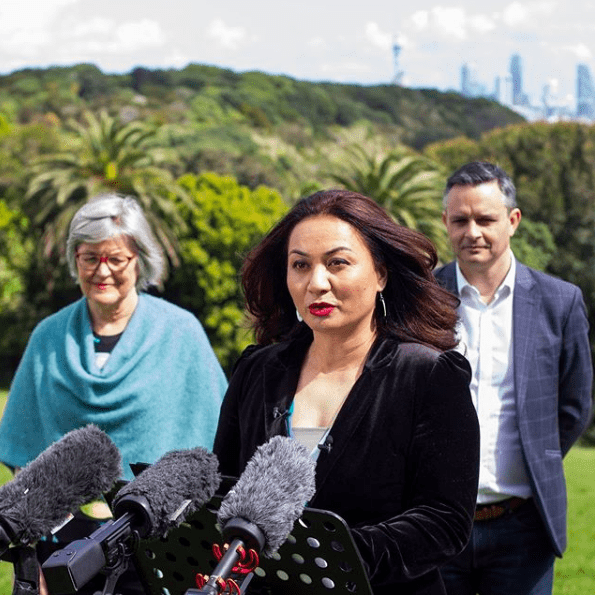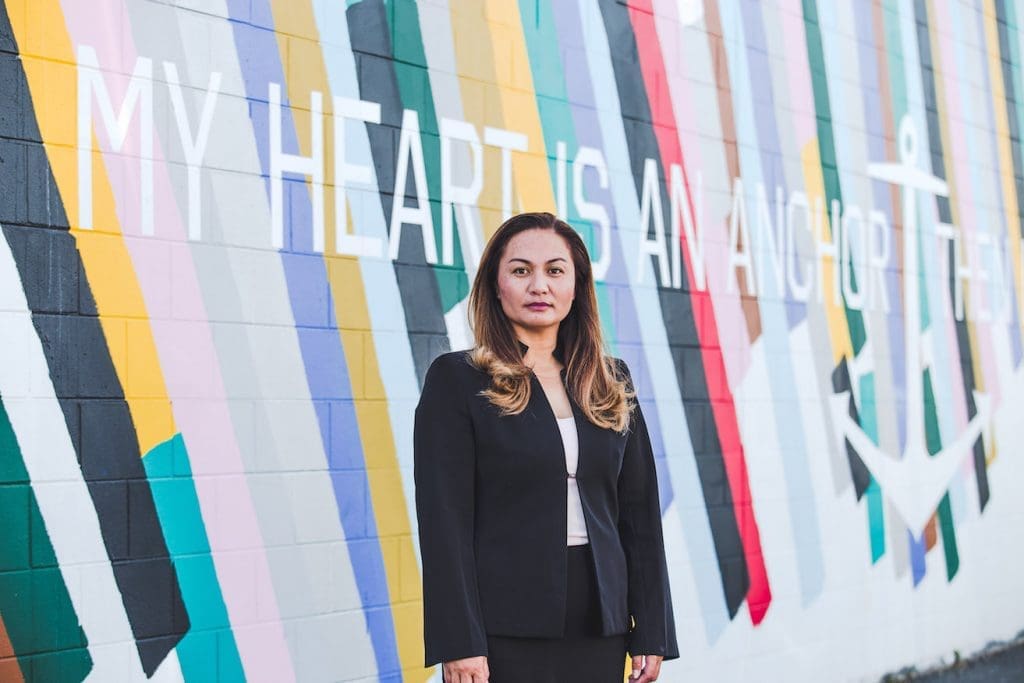In a recent poll by The Guardian, New Zealand voters were asked what was the biggest issue they were considering when it comes to voting in the general election this year. The answer, from an overwhelming majority, might surprise you. It wasn’t Covid-19. It was the other C word. According to 90% of those questioned, Climate Change was the key issue.
In January this year, Green’s co-leader Marama Davidson delivered the party’s State of the Planet speech, where the three key issues were climate change, inequality and housing. That speech may feel like it happened “a million years ago,” Marama laughs dryly, but the content has only become more important in the months that have followed. “Covid-19 has exacerbated the social and economic inequalities [New Zealand faces] and has also heightened the value, for me, of doing everything we can to make sure we’ve got our foundations as strong as we can. Because that’s what we can control. We cannot control a virus.”

This cursed year has been hard on everyone; but the toll is immeasurably harder for people who were already living in ongoing, difficult circumstances. Social and financial inequality, chronic health problems, bad housing, etc., can make for an extraordinary hard pandemic/lockdown/recession experience.
“We have to make sure we’ve focused on a stable climate as much as possible, where we’re all not having to deal with ongoing extreme weather events and all of the impacts of climate change,” Marama says. “Making sure that everyone has got enough to live good lives, then that will hold us in good stead for all of the issues that are going to come upon us at any given time. I don’t think this is the last global pandemic we’ll see in our lifetimes. The more we can strengthen our foundations, the more resilient we will be together.”
The idea of looking forward, multiple generations, is something Marama grew up with. It’s a cornerstone of indigenous power – the idea that you think seven generations ahead. “Down on the east coast, where I’m from on my mother’s side, the nannies would point to a piece of water or a stream and say, ‘We’ve got to protect that watercress patch down there so that our great, great, great, great, great, great, great grandchildren can continue to eat it.’ It’s that sort of thinking that would help us stop pollution at its cause and help us have better holistic systems that move us away from the short-term, exploit-at-all-costs frame of mind we are currently in.”


For those of us who are petrified of climate change – and from that Guardian report, it seems that’s a heck of a lot of us – the idea of looking at things from that holistic perspective seems like common sense. “Everything is connected,” Marama says. “What we do in one area will impact what we do in other areas – for far too long, political systems have falsely isolated and separated things out.”
“As an example, a housing plan is a social justice plan, it’s an economic justice plan. But it’s also a climate justice and environmental protection plan because we need to make sure that everyone has a guaranteed right – and opportunity – to live in a warm, safe, healthy and secure home. But we also need to be thinking about how we design our communities, the building materials they’re made out of, how we reduce our waste, how we reduce our power costs, how our houses use energy… we really need to understand that exploiting our living systems in the short term, it’s not just connected to social justice and climate justice, it’s all connected across generations. If we’re not thinking ahead, we will be irresponsible ancestors for our great, great, great, great, great grandchildren.”
As a mother and a grandmother, Marama has a personal stake in those generations but she says everything about politics is personal.


“Politics is personal for everybody – people don’t often realise how political they are. I hear people saying, ‘I’m not into politics’ but everyone is, whether they like it or not. We’re living with the impact of political decisions every single day, in every part of our lives. Everything is personal and everything feels like big stakes for the future generations – way beyond even just my children and grandchildren.”
Maintaining any kind of work/life balance in a career where the stakes are so huge can be overwhelming, Marama says. Spending quality time with her whānau and spending as much time outdoors as she can are both tools she uses to give her energy when she needs it; but she also says the work itself is energising. “The thing that give me hope is the faith I have in the people on the ground who are wanting to keep working together, with collective purpose.” That’s always been the Green’s kaupapa – policies that are based on that idea of community. “We’re trying to bring people together, rather than tear people apart. We’re trying to create a collective, positive movement for change and hope, rather than” – Marama lets out a tiny sigh – “attacking and focusing on what other political parties are doing.” The way New Zealand rallied around each other as a community during Covid-19 affirmed for her how powerful – and necessary – that collective responsibility is. “All of a sudden, we were all having to pull our weight and take care of each other. It really shoved back the idea of individual responsibility – collective responsibility was key.”

